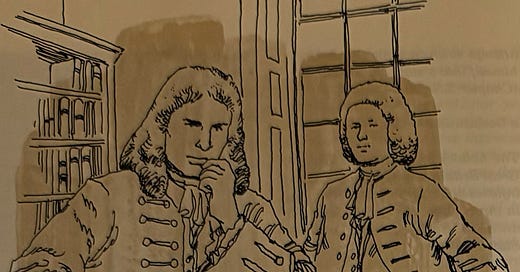Legacy of Locke: "one good Town"
Originally published in the Colonial Williamsburg Journal in the April/May 1999 edition.
It would be well if the King would order the Governor, and other principal officers of the Government to reside at the chief of these Towns viz: the Secretary, Auditor, the Judges, (when they come to be appointed) the Attorney General, the Clerk of the County Court, the Collector and naval Officer of that Port, and to keep their several offices there, as also that the General Assembly should sit there; and if this were the same place where the Colledge is (which for health and all other Conveniences is the fittest place in the Country for such a Town) this would make one good Town at once. - John Locke, “Some of the Chief Grievances of the Present Constitution of Virginia, with an Essay Towards the Remedies Thereof,” 1697.
ONE OF HISTORY’s best-kept secrets is that John Locke, England’s most prominent philosopher, had a hand in the move of Virginia’s capital from Jamestown to Middle Plantation - as witness the above quotation. The story begins in 1693, when the Reverend James Blair, the bishop of London’s commissary, returned to Virginia with the newly granted charter establishing the College of William and Mary. In his absence Edmond Andros had been appointed governor of the colony. Andros opposed the college and suspecded Blair from his position on the governor’s Council. Seething, Blair conspired with Francis Nicholson, governor of Maryland and one of the trustees of the College of William and Mary, to have Andros replaced. On March 30, 1697, Nicholson wrote Locke that Blair was about to leave Virginia for London to attend to the school’s endowment and that he would give him “a full account of all the Virginy Affairs, especially concerning the College.”
Keep reading with a 7-day free trial
Subscribe to Harrowings to keep reading this post and get 7 days of free access to the full post archives.




